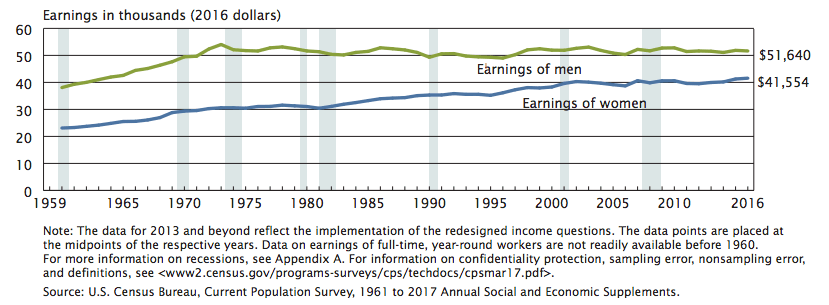Americans must accept more of the world’s refugees into their job markets and neighborhoods, says a Washington Post op-ed by Walter Mondale, the Democrat presidential candidate who lost 49 of 50 states to President Ronald Reagan in November 1984.
“There is hope,” Mondale says in his op-ed, continuing:
While most Americans do not have the privileges my office afforded me in 1979, nor the platforms upon which to speak out, there are steps everyone can take to make a real, tangible impact. Contact your representatives in Washington. Make the case for an increase in refugee admissions. Speak up against this administration’s tactics of cruelty and inhumane treatment of asylum seekers at our border. And, of course, change can be made with a vote when the time comes. When enough voices are raised, change can happen.
Mondale, age 91, grew up in Minnesota and lived in a time of unprecedented American solidarity, supremacy, and purpose. Since then, the nation has become more diverse and divided, and politics has now shifted to so sharply that Democrats in the 2020 election are adopting a pro-elite, cheap-labor policy via the decriminalization of illegal immigration and the award of taxpayer-funded health care to illegal migrants.
In contrast, President Donald Trump won the 2016 election because millions of former Democrat voters felt Washington was ignoring their economic and civic interests.
Moreover, the nation’s huge demographic, economic and political shift was begun by Mondale and the 77 other Senators who voted for the Immigration and Nationality Act of 1965.
The legislation expanded immigration and ended the low-migration/high-wage policy established by Congress in 2024 amid huge public pressure. In the decades since 1965, new wealth has shifted to employers, investors, and real-estate owners as Americans’ wages and salaries have grown slowly amid a flood of government-delivered migrant labor — although Americans’ products, food, autos, information, medicine, and services have gotten far better and cheaper, and family income has risen as women joined the workforce.
In 1965, the U.S. population was 200 million. Since then, the population has expanded to 330 million, including at least 45 million immigrants.
But Mondale blames Trump for the public’s reaction to the post-1965 economic and civic consequences of his own legislation:
We are once again in a humanitarian refugee crisis of unprecedented proportions. Today, we are confronted with a president doing everything in his power to undermine or ignore U.S. laws and regulations relating to refugees and asylum seekers. A country once recognized as a respected humanitarian leader, the United States now slams the door to all but a relative few. The Trump administration has dramatically slashed refugee admissions numbers, from 84,995 during President Barack Obama’s last year in office to just 22,491 last year. But even that isn’t enough for the administration, which is reportedly considering zeroing out admissions entirely next year. And this at a time when the numbers fleeing religious and political persecution, violence, torture and war are higher than at any time since World War II.
Mondale suggests the U.S. should accept many millions of foreign refugees:
According to the UNHCR, there are 70.8 million forcibly displaced people worldwide, 25.9 million of whom are refugees and 3.5 million of whom are asylum seekers. And yet, the Trump administration has admitted only 21,260 refugees so far this fiscal year.
Make no mistake, I firmly believe in and support nations’ prerogatives to control their borders. But it is imperative that the United States does this in a manner consistent with both U.S. and international law and that reflects America’s founding principle of welcoming those most in need.
Mondale declined to explain his claim that “welcoming those most in need” is a founding principle of the United States.
Mondale’s op-ed does not mention his 1984 blowout by President Reagan, who won 58 percent of the national vote.
Read the op-ed here.
Immigration Numbers
Each year, roughly four million young Americans join the workforce after graduating from high school or university. This total includes approximately 800,000 Americans who graduate with skilled degrees in business or healthcare, engineering or science, software or statistics.
But the federal government then imports about 1.1 million legal immigrants and refreshes a resident population of roughly 1.5 million white-collar visa workers — including approximately 1 million H-1B workers and spouses —plus around 500,000 blue-collar visa workers.
The government also prints out more than one million work permits for foreigners, tolerates about eight million illegal workers, and does not punish companies for employing the hundreds of thousands of illegal migrants who sneak across the border or overstay their legal visas each year.
This policy of inflating the labor supply boosts economic growth for investors because it forces Americans to compete for jobs and ensures that employers do not have to compete for Americans by offering higher wages and better working conditions.
This policy of flooding the labor market with cheap, foreign, white-collar graduates and blue-collar labor also shifts enormous wealth from young employees towards older investors, even as it also widens wealth gaps, reduces high-tech investment, increases state and local tax burdens, and hurts children’s schools and college educations.
The cheap-labor economic strategy also pushes Americans away from high-tech careers and sidelines millions of marginalized Americans, including many who are now struggling with fentanyl addictions. The labor policy also moves business investment and wealth from the heartland to the coastal cities, explodes rents and housing costs, shrivels real estate values in the Midwest, and rewards investors for creating low-tech, labor-intensive workplaces.


COMMENTS
Please let us know if you're having issues with commenting.